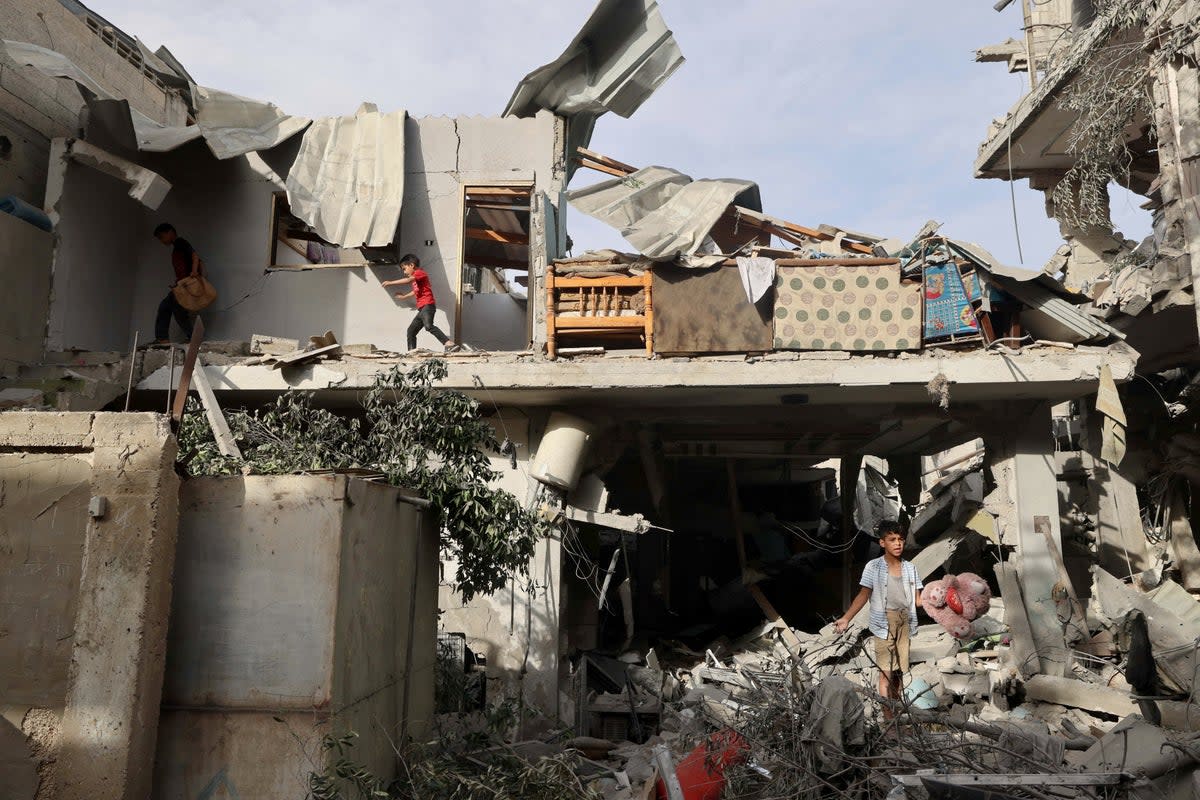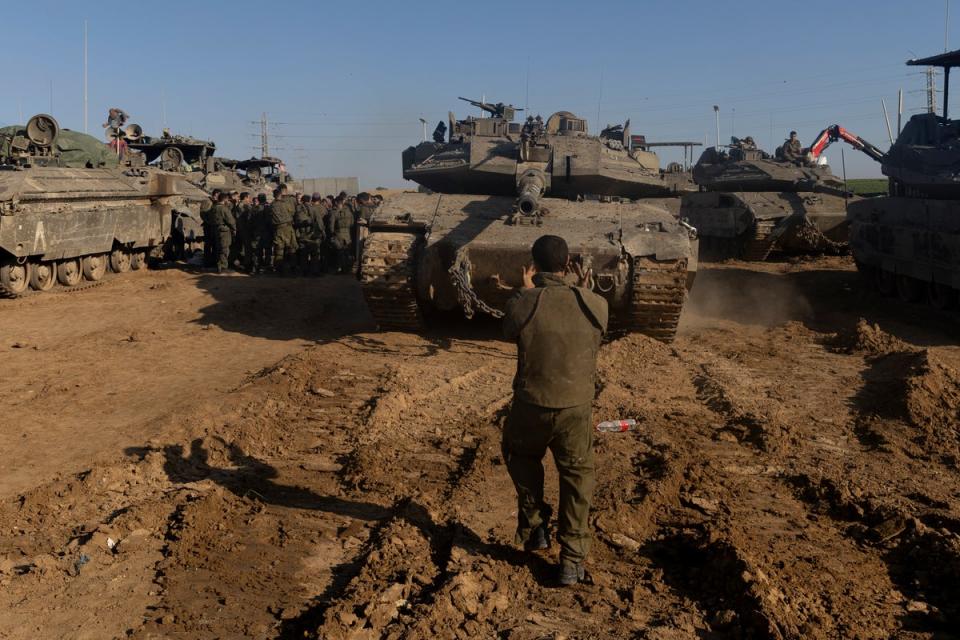Israel ‘moving ahead’ with Rafah attack despite US plea

Israel looks to be readying troops for an offensive in the last remaining corner of the Gaza Strip untouched by heavy fighting.
A spokesperson for Israeli prime minister Benjamin Netanyahu said the military was moving ahead with its plans for a ground operation in Rafah, while the Israeli military said that it had mobilised two more reservist brigades for missions in Gaza.
Israel’s long-threatened plan has drawn intense opposition from Israel’s allies, including its most powerful ally the US, which said such an attack on Rafah would cause thousands of civilian casualties and further disrupt aid deliveries. More than a million Palestinians have been displaced into the small southern city, many of whom are living in makeshift tents.
“We’ve had very detailed discussions … to talk through not just our concerns but our view that there is a different way to go about dealing with the Hamas threat in Rafah,” US national security adviser Jake Sullivan told reporters in Washington.
Although Israel says it has dismantled most of the initial two dozen Hamas battalions since the start of the war, it believes there are four remaining battalions holed up in Rafah, using civilians as human shields.
Officials say that a Rafah offensive is necessary to achieve total victory over Hamas, the central premise of their ongoing war in the Gaza Strip.
Displaced people sheltering in Rafah, meanwhile, suggested this time around that Israel “sounds more serious” about an attack.

Tamer al-Burai, who had already fled from Gaza City in the north down to Rafah, said his entire family, which includes women, children and elderly and sick people, were readying to flee again.
“Invasions happen under heavy fire and people die as they leave,” he told Reuters. “So we decided we should leave earlier.”
A senior defence official said Israel’s Defence Ministry had bought 40,000 tents, each with the capacity for 10 to 12 people, to house Palestinians relocated from Rafah in advance of an assault.
A video that circulated online appeared to show rows of square white tents going up in Khan Younis, three miles north of Rafah, which was decimated in a months-long Israeli air and ground campaign. But that space is unlikely to cater for the more than one million Palestinians currently residing in Rafah.
The war in Gaza, which began with the deadly Hamas attack in southern Israel on 7 October that killed about 1,200 people, mostly civilians, and led to 250 more being taken hostage in the enclave, has dragged on for nearly seven months while ceasefire negotiations have stalled.
More than 34,000 Palestinians, most of them women and children, have been killed in Israel’s retaliatory offensive in Gaza, while some 80 per cent of the population of 2.3 million has been displaced.
In the past 24 hours, Israeli strikes have killed at least 79 Palestinians and wounded 86, the Hamas-run Gaza health ministry said. The northern city of Beit Lahiya came under massive shelling for a second day on Wednesday, 24 hours after the Israeli military ordered residents out of four districts declared a “dangerous combat zone”.
It comes as Khalil al-Hayya, a top Hamas political official, claimed that an Israeli offensive in Rafah would not succeed in destroying the Islamic militant group.
He alleged that Israeli forces “have not destroyed more than 20 per cent of [Hamas’s] capabilities, neither human nor in the field” and that the only end to the conflict was a ceasefire.
“If they can’t finish [Hamas] off, what is the solution? The solution is to go to consensus,” he said.
He claimed the Islamic militant group is willing to agree to a truce of five years or more with Israel if an independent Palestinian state is established along pre-1967 borders.
It is unclear to what extent his position represents the official position of Hamas. Over the years, the group has sometimes moderated its public position concerning the possibility of a Palestinian state alongside Israel.
But its political programme still officially “rejects any alternative to the full liberation of Palestine, from the river to the sea” – referring to the area reaching from the River Jordan to the Mediterranean Sea, which includes lands that now make up Israel.


